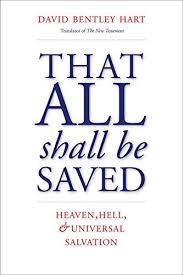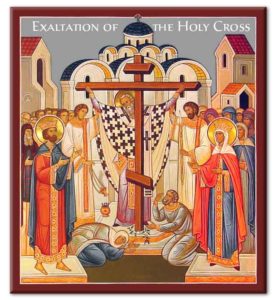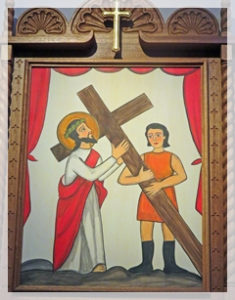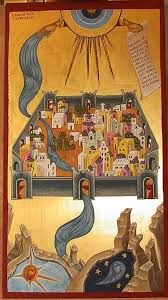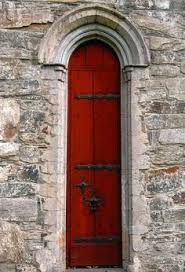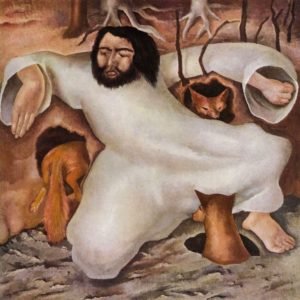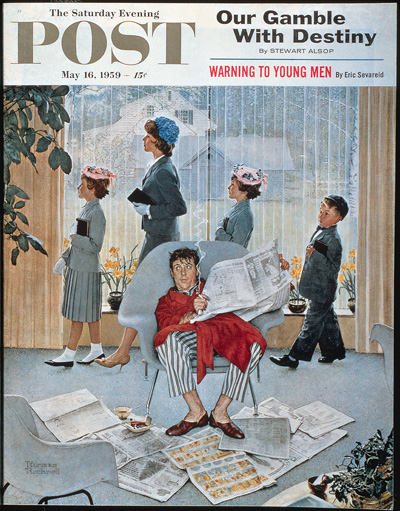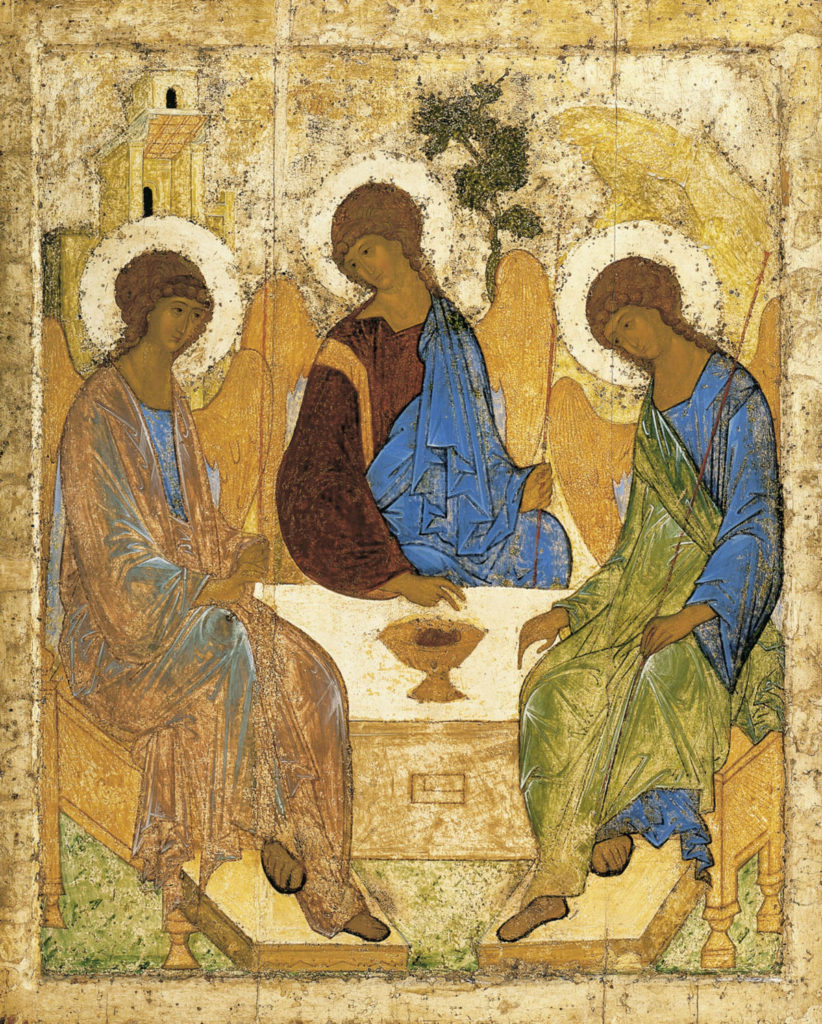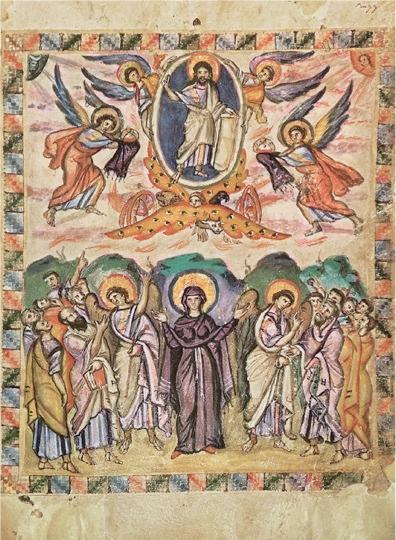Now and again the possibility of universal salvation is a subject of controversy. Hans Urs von Balthasar roiled Catholic waters with his Dare We Hope That All Men Will Be Saved? David Bentley Hart has entered the lists with his new book All Shall Be Saved.There is a strain of universalism in St. Paul, with his repeated emphases on “all.” But there are the solemn warnings of Jesus about the worm that dies not and the fire that is not quenched.
I am not a theologian, so I will not try to answer the question. I might point out that our theories do not cause salvation or damnation: God’s actions do.
But we should consider what our reaction to Jesus’ solemn warnings should be. Jesus makes these warning in his prophetic role. A passage from 1 Kings 14 can help us see how Jesus wants us to react:
“At that time Abijah the son of Jeroboam fell sick. 2 And Jeroboam said to his wife, “Arise, and disguise yourself, that it be not known that you are the wife of Jeroboam, and go to Shiloh; behold, Ahijah the prophet is there, who said of me that I should be king over this people. 3 Take with you ten loaves, some cakes, and a jar of honey, and go to him; he will tell you what shall happen to the child.”
4 Jeroboam’s wife did so; she arose, and went to Shiloh, and came to the house of Ahijah. Now Ahijah could not see, for his eyes were dim because of his age. 5 And the Lord said to Ahijah, “Behold, the wife of Jeroboam is coming to inquire of you concerning her son; for he is sick. Thus and thus shall you say to her.”
When she came, she pretended to be another woman. 6 But when Ahijah heard the sound of her feet, as she came in at the door, he said, “Come in, wife of Jeroboam; why do you pretend to be another? For I am charged with heavy tidings for you. 7 Go, tell Jeroboam, Thus says the Lord, the God of Israel: “Because I exalted you from among the people, and made you leader over my people Israel, 8 and tore the kingdom away from the house of David and gave it to you; and yet you have not been like my servant David, who kept my commandments, and followed me with all his heart, doing only that which was right in my eyes, 9 but you have done evil above all that were before you and have gone and made for yourself other gods, and molten images, provoking me to anger, and have cast me behind your back; 10 therefore behold, I will bring evil upon the house of Jeroboam, and will cut off from Jeroboam every male, both bond and free in Israel, and will utterly consume the house of Jeroboam, as a man burns up dung until it is all gone. 11 Any one belonging to Jeroboam who dies in the city the dogs shall eat; and any one who dies in the open country the birds of the air shall eat; for the Lord has spoken it.”’ 12 Arise therefore, go to your house. When your feet enter the city, the child shall die. 13 And all Israel shall mourn for him, and bury him; for he only of Jeroboam shall come to the grave, because in him there is found something pleasing to the Lord, the God of Israel, in the house of Jeroboam. 14 Moreover the Lord will raise up for himself a king over Israel, who shall cut off the house of Jeroboam today. And henceforth[a] 15 the Lord will smite Israel, as a reed is shaken in the water, and root up Israel out of this good land which he gave to their fathers, and scatter them beyond the Euphrates, because they have made their Asherim, provoking the Lord to anger. 16 And he w0ill give Israel up because of the sins of Jeroboam, which he sinned and which he made Israel to sin.”
17 Then Jeroboam’s wife arose, and departed, and came to Tirzah. And as she came to the threshold of the house, the child died. 18 And all Israel buried him and mourned for him, according to the word of the Lord, which he spoke by his servant Ahijah the prophet.”
Jeroboam’s wife does not respond to the prophet’s word. Does she disbelieve him? Or does she believe and accept the prophetic word in silent resignation?
Peter Leithart comments:
“The interesting thing about this possibility is that her silent resignation is as much an act of unbelief as a loud rejection. Faith responds to a prophecy of doom like David, who fasts, prays, and mourns for his son, in spite of Yahweh’s telling him that his son will die. So long as the child lives, there is hope.
“Faith is often confused with resignation. The prophetic word comes, cutting like a double-edged sword, and we respond with tight-lipped silence. This is not faith. Faith responds to God’s word, not with silent submission, but with confession, praise, earnest and anguished petition. Faith responds with the desperate cries of a Job, the “my God, my God” of David and Jesus, the “how long, O Lord?’ of the Psalms. God’s word is not the end of a conversation, but an invitation to renew conversation. God does not judge and condemn to send us slinking away in resigned silence. God judges and condemns so that we can give our “amen” to his judgment, humble ourselves, and be saved. Ultimately, the issues go to theology proper: the Triune God, the God whose life is an eternal conversation, does not create a world as a stage where he performs soliloquies before a respectfully hushed audience. God creates the world and humanity to enter into a dialogue.”
And what should be our response to Jesus’s solemn warnings about damnation?
Barbara Newman recounts St. Catherine of Siena’s response:
Catherine of Siena muses that she would lovingly be condemned to hell for the honor and glory of God if all sinners could thereby be saved. But God replies that this would be impossible “Love of me cannot exist in hell, for that love would wipe hell out of existence.” So much the better, Catherine replies: “If your truth and justice would permit it, I would love that hell should be wiped out, or at least that no soul should ever go there again. And if were possible that, without losing love of you, I could be set upon the mouth of hell to close it, and so prevent any further souls from entering it, that is what I would like most of all.”
Newman shows that many women mystics followed this logic: they told God that they would be willing to suffer the pains of hell that all souls might be saved. They challenged God: Could He be less merciful than they were? They did not accept the judgement of eternal salvation for sinners. They suffered and prayed and wept. They entered into the conversation within God: How could His justice and mercy be reconciled. How could His deepest desire be fulfilled, that all be saved, that through Jesus the whole cosmos would escape everlasting death and be returned to the Father? How, how, how….
